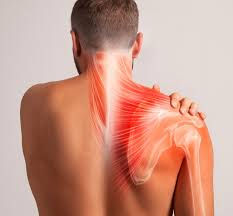The Myth of Slow Metabolism
- Tony Warren
- Oct 5, 2025
- 3 min read

It seems to make sense that if your metabolism is slow, you will gain weight more easily and have a harder time maintaining an ideal body weight than if your metabolism is fast and there are plenty of people out there who are willing to sell you some pill, product, or program to speed up your metabolism. Save your money. It is mostly sales hype.
Energy expenditure does differ between individuals, but this is due to factors like body size, body composition (muscle vs. fat), age, and activity level, not because you have some inherent, unchangeable "fast" or "slow" metabolic rate.
Your metabolism is doing a lot more than just burning calories. Metabolism is the process that converts your food into the energy your body needs to breathe, think, digest, circulate your blood, regulate your body temperature and build the indvidual cells of your body.
More than anything else it is your lifestyle that controls your body shape and weight. Exercise is important to a healthy lifestyle, but exercise does not burn nearly as many calories as most people think.
An average sized person walking 3 miles per hour which is a moderate pace, would need to walk almost 6 miles to burn 500 calories. A large blueberry muffin from Costco contains 610 calories. Now, do you walk 6-7 miles as often as you eat a blueberry muffin?
You don't have to hit the gym everyday to burn additional calories. Make regular physical activity part of your daily routine. Even small actions like taking the stairs or short walking breaks can contribute to your overall energy expenditure.
Lifting weights or other strength training can help to build muscle. The percentage of muscle on your body compared to the amount of fat will affect your metabolic rate. Muscle burns more calories than fat, even when you are resting, but not a whole lot more. Building muscle helps, but it is no magic bullet. Moving your body throughout the day and putting that muscle to work is much more effective.
Common metabolism myths include that you can't eat after a certain time, that certain foods can magically speed up your metabolism, and that some people have naturally faster metabolisms.
There is no evidence that what time of day you eat has any effect on the amount of calories you burn. The problem with eating late at night is that you may be mindlessly eating out of habit or boredom, not because you are hungry or need nourishment.
Some foods like hot peppers and green tea do provide a minor and temporary boost to your metabolic rate, but it is a small boost and not enough to make much difference overall.
Instead of looking for magic fixes, provide your body with necessary nutrients by consuming consistent, balanced meals that include lean protein, whole grains, healthy fats, and plenty of colorful fruits and vegetables.
Get adequate sleep, stay physically active, and manage your overall calorie intake to be less than what you burn.
What's most important is to maintain an appropriate calorie intake over time. If your average weekly calories consumed do not exceed your average weekly expenditure, you can stop worrying about every little detail. You can enjoy the occasional blueberry muffin, just don't eat a carton of them every day.





Comments